
We see music almost as much as we hear it. While there have always been purist scolds who insist that it should only be about the music (man!), pop has been a visual medium as much as an auditory one since well before the advent of music videos. From the “zoot suits” favored by jazz legends such as Cab Calloway and Louis Armstrong to Billie Holiday’s white flower crown to the Fab Four’s bowl haircuts, artists have long paid attention to their visual presentation.
The factors that differentiate the truly iconic artists from the rest of the pack are innumerable, and talent, drive, and luck are certainly the highest. But the artists that linger in our collective cultural memory are the ones that tell a story about themselves that we all wrap around us like a world-sized blanket until it becomes part of our story as well. And clothing is often a big part of how they tell that story. (I said “often,” as I understand that no one has ever looked to Radiohead for style inspiration. Look for our list of “The Least Influential Style Icons In Music History” sometime never.)
Ranking the artists that had the most impact on individual style is no easy task, but there were a few ground rules. Primarily, we were looking for the artists who made the most impact on how people actually dressed day-to-day. So while artists such as David Bowie, Lady Gaga, and Björk specialized in eye-popping, mind-blowing visuals for their stage shows and music videoes, only their superfans actually tried to wear swan dresses or pull off the Bloody Mary before going to a party, whereas you can find plenty of people who still dress like Kurt Cobain today. As Tan France of Queer Eye has explained, the difference between fashion and style is that fashion is a huge, global business influenced by designers and labels, while “personal style is something that belongs to an individual — a means of self-expression.” Fashion reporting is for Vogue and all that, so we decided to focus on the artist whose personal style became our personal style.
We also wanted to place an added emphasis on the artists whose looks and ideas endure even today, which meant making tough but necessary cuts such as excluding Mod Gods The Jam, glam icons T. Rex. or swoop bang pioneers My Chemical Romance, all of whom defined an era or a genre, but also, at least style-wise, feel confined to a time and place. (Look, I only had ten spots, okay?) So whether you’re looking for style inspiration or you just want to get mad that we snubbed your fav (I assure you, they were No. 11), read on for our lists of the artists that most exemplify the meeting of sound and vision.
The Beatles
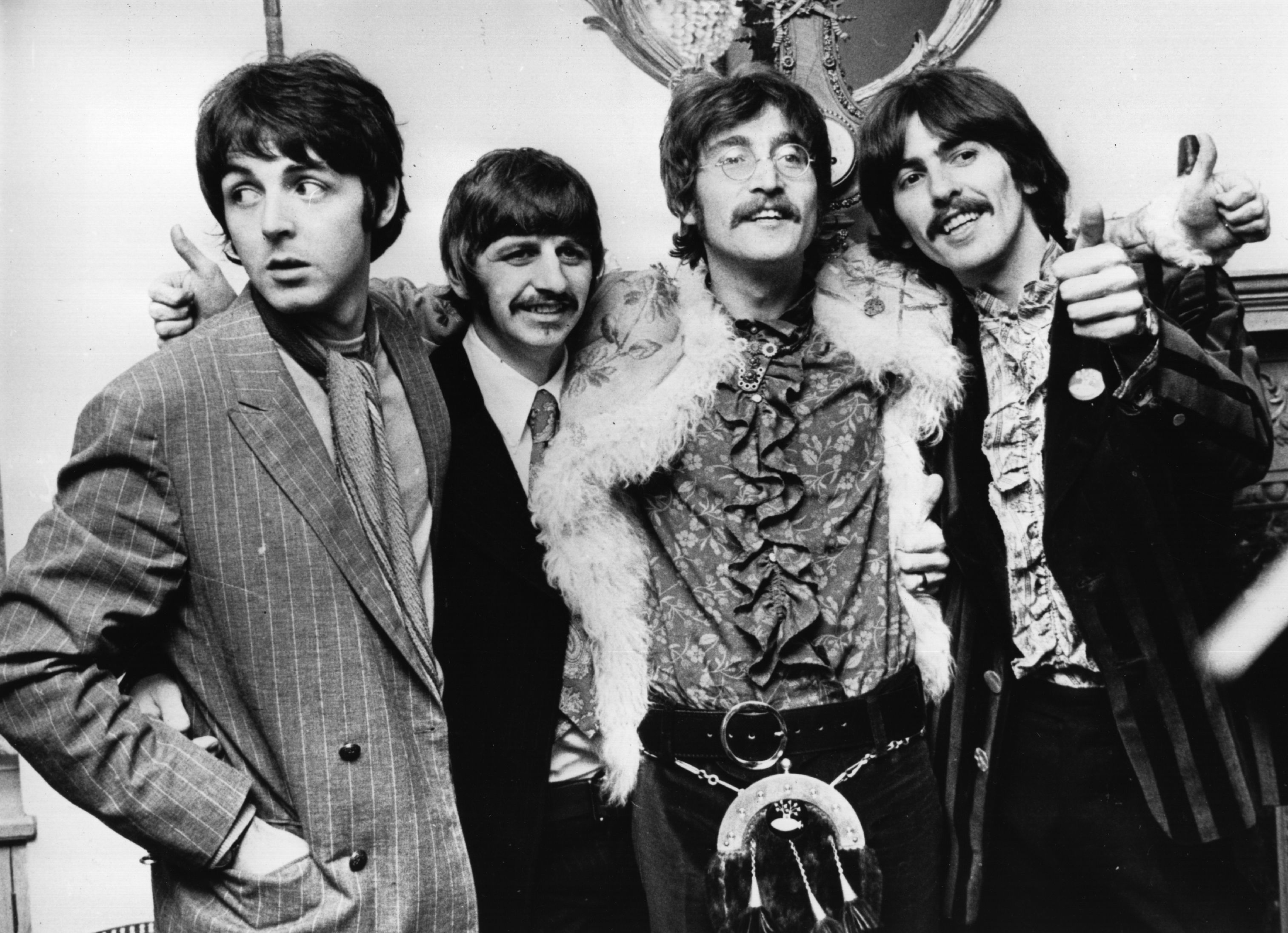
If you’re making a list of the Most Influential Whatever In Music History, there’s a very strong chance that The Beatles will end up somewhere in your list. The Beatles didn’t always do it first, and the matching suits they wore when introducing themselves to America on The Ed Sullivan Show were influenced by the band uniform approach of early rock ‘n’ roll pioneers such as Buddy Bolly & The Crickets. But The Beatles usually did it the best, and as their look evolved from their teen idols days to the conceptual St. Pepper look to their shaggy final days, they inadvertently created the template for artists to change up their look for every album cycle. Along the way, they inspired young men to get creative with their grooming habits and had an incalculable impact on the look of ’60s and ’70s American counter-culture.
“It’s so funny to look at it now and think that their hair was considered so long at the time! But they really did help to shift that style norm and usher in the shaggy look that became mainstream,” says Abbey Bender, an archivist and a writer on fashion and culture whose work has appeared in Buzzfeed and The Washington Post. “I think the fact that ‘Beatle boots’ became a popular trend during their reign is also a form of “street style” before that was officially a thing.”
The Ramones + Blondie
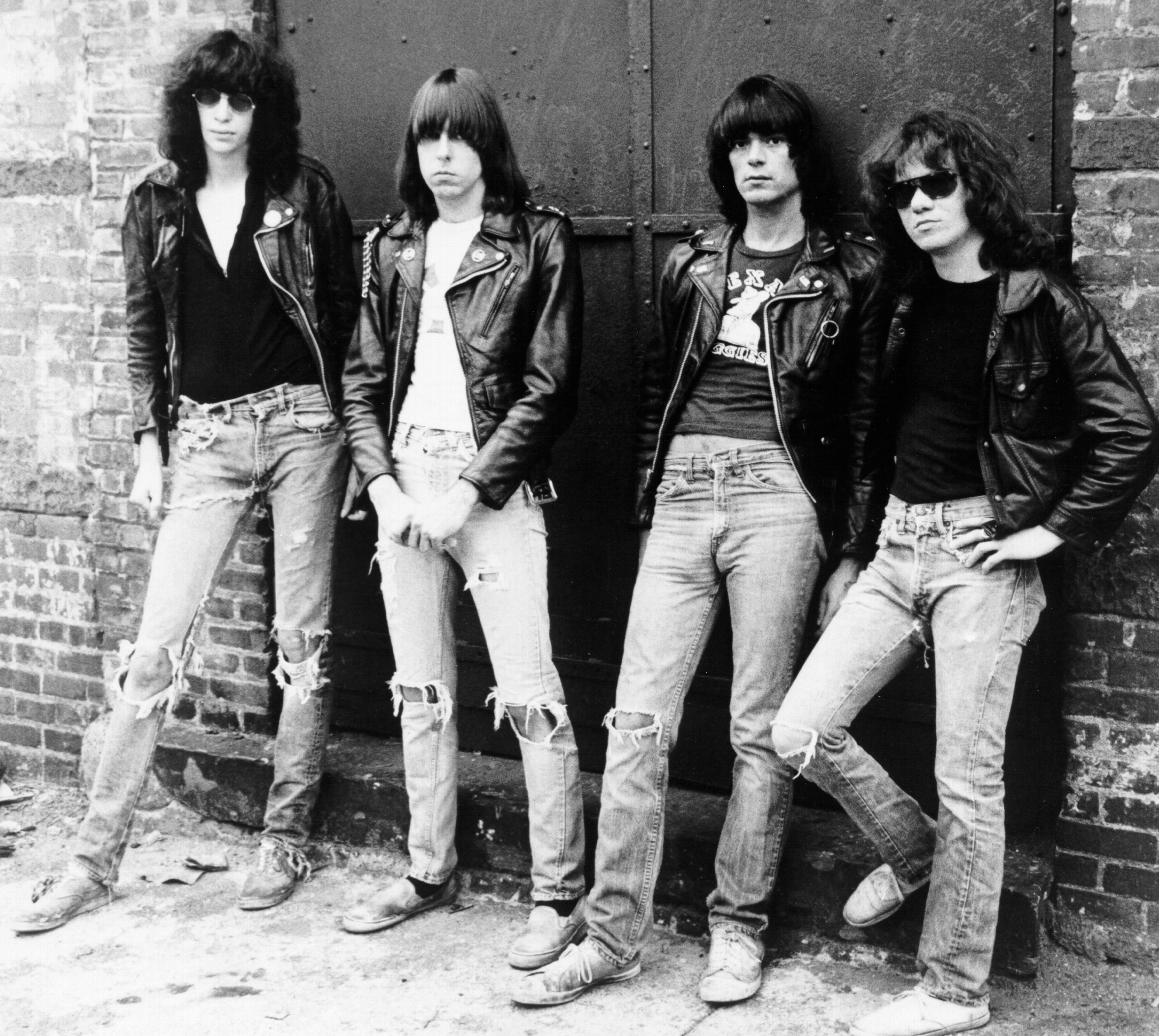
The genius of The Ramones is that they were smart enough to not overthink it. In their minds, rock didn’t need more than four chords, a fast beat, and plenty of heying and hooing to make an impact, and they didn’t need anything besides t-shirts, cheap jeans, leather jackets, and the all-important Chuck Taylor sneaker to become style icons.
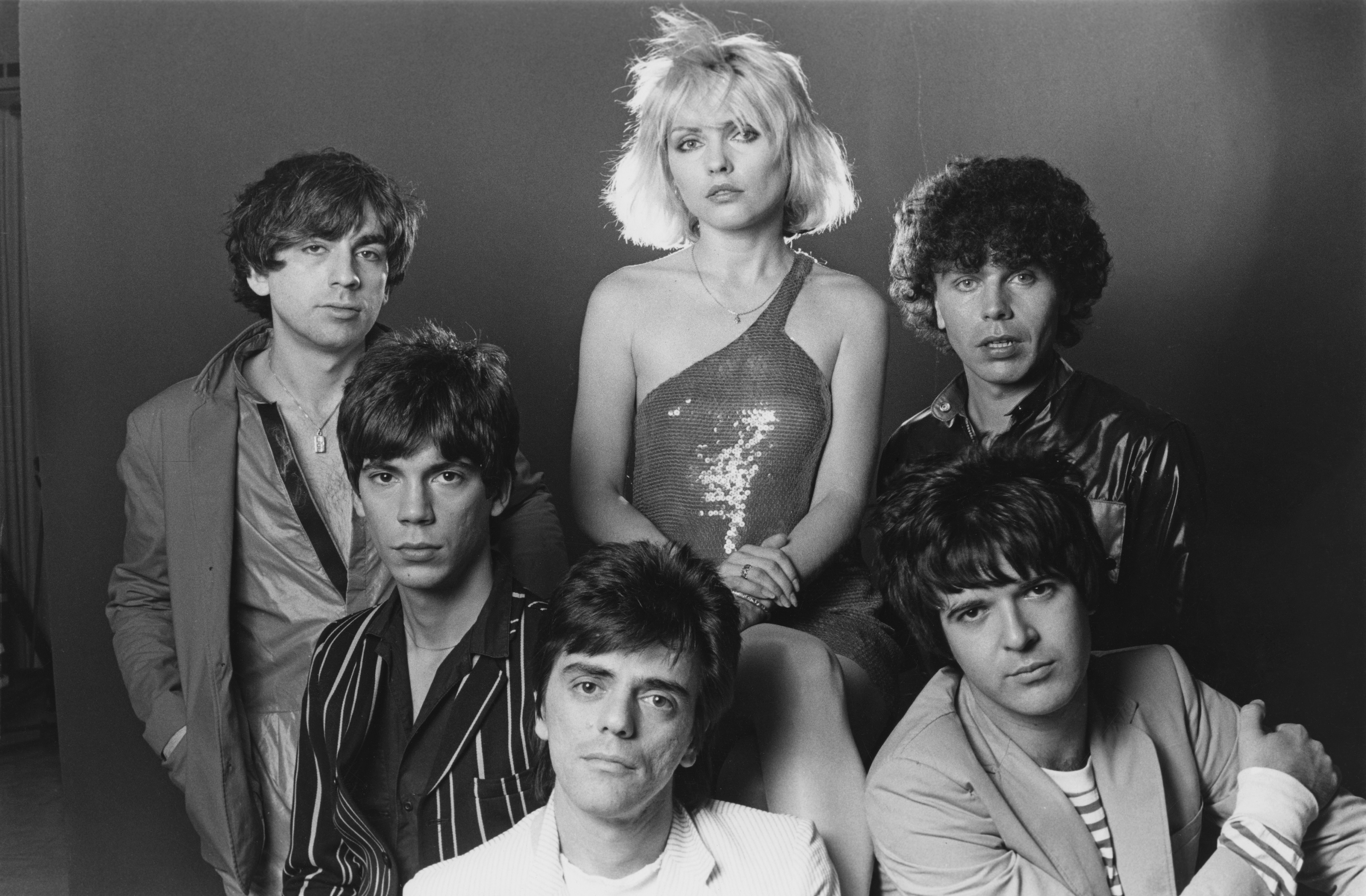
After punk came post-punk, as artists who were inspired by the freedom of punk but weren’t necessarily ideologically opposed to a few more chords began rewriting the rule book of rock. Blondie came up playing at New York punk institutions CBGBs and Max’s Kansas City right alongside their friends in The Ramones, and just as they moved beyond stripped-down rock to incorporate disco, dub reggae, and New Wave influences, Debbie Harry and company proved there was plenty of room in downtown counter-culture for some glamour.
“While her style was not flashy, her looks from the mid-’70s and late ‘80s have remained iconic not only with teenagers/the young set but on runways worldwide,” says Alyson Campbell, a style expert and the CEO & Founder of Heart & Soul PR, which services a range of brands in fashion and lifestyle. “One-shoulder tops are back, berets have come back into style, and colored tights are definitely not going anywhere.”
Run-DMC + LL Cool J
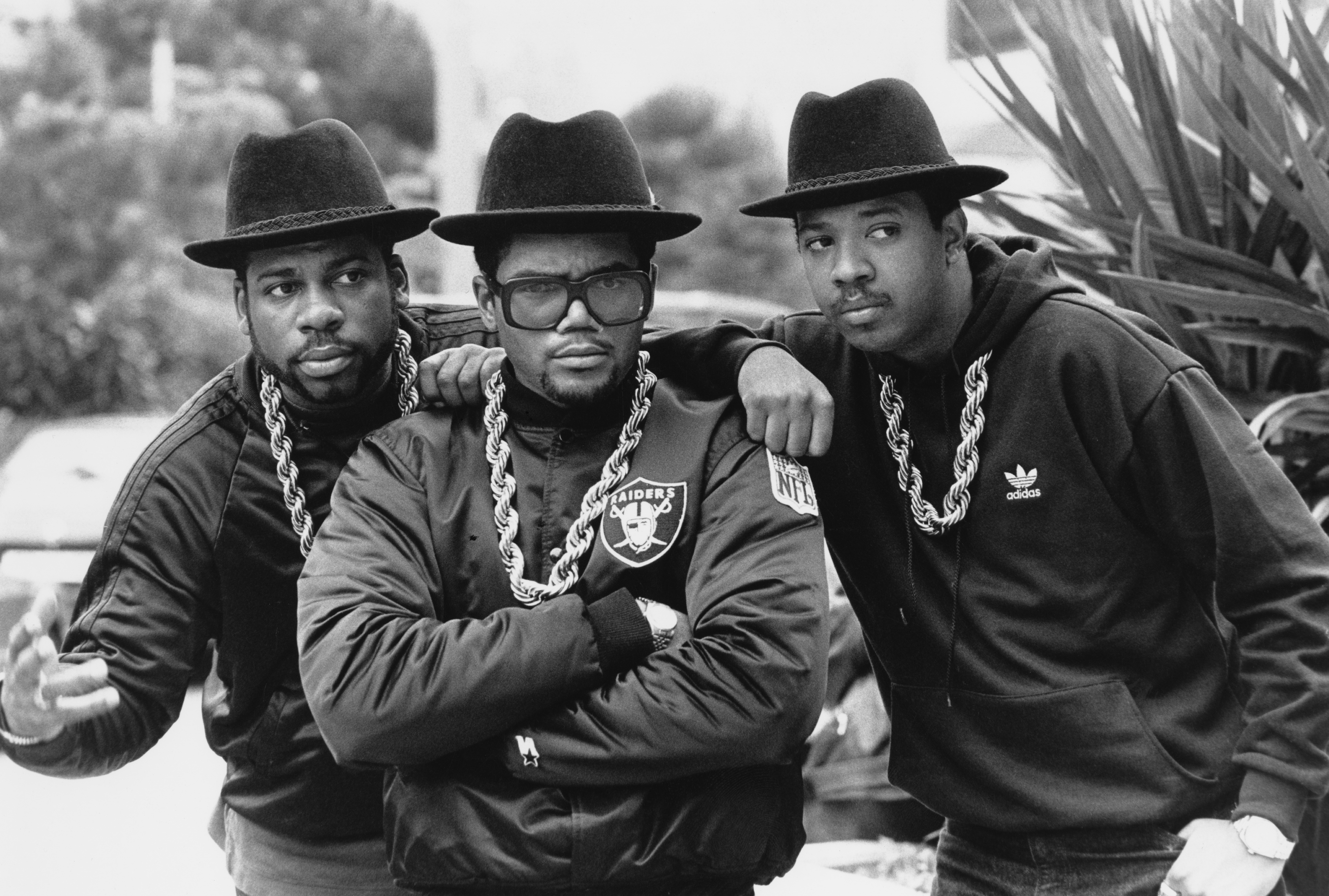
When it comes to style, it’s less about who wore it first than it is Who Wore It Best? Early hip-hop’s look of tracksuits, Kangol bucket hats, and gold “dookie” chains was established pretty much as soon as DJ Kool Herc began spinning at Bronx block parties. But hip-hop pioneers Run-DMC wore the look with brash confidence, and with the right songs and the right videos on the then-new MTV, the Hollis, Queens trio brought the sound and visual iconography of rap to the mainstream. They would later mix up their aesthetic with matching leather jackets, just to remind you what they were indeed tougher than.
For most of the ’80s, Run-DMC was how rap music looked to the suburbs, “and they’re still making history,” says Campbell. “Kangol hats are back on the fashion-clad influencers along with loud sweatsuits again because, well, most everyone is now working from home! They were the early starters of streetwear that’s become fashion.”
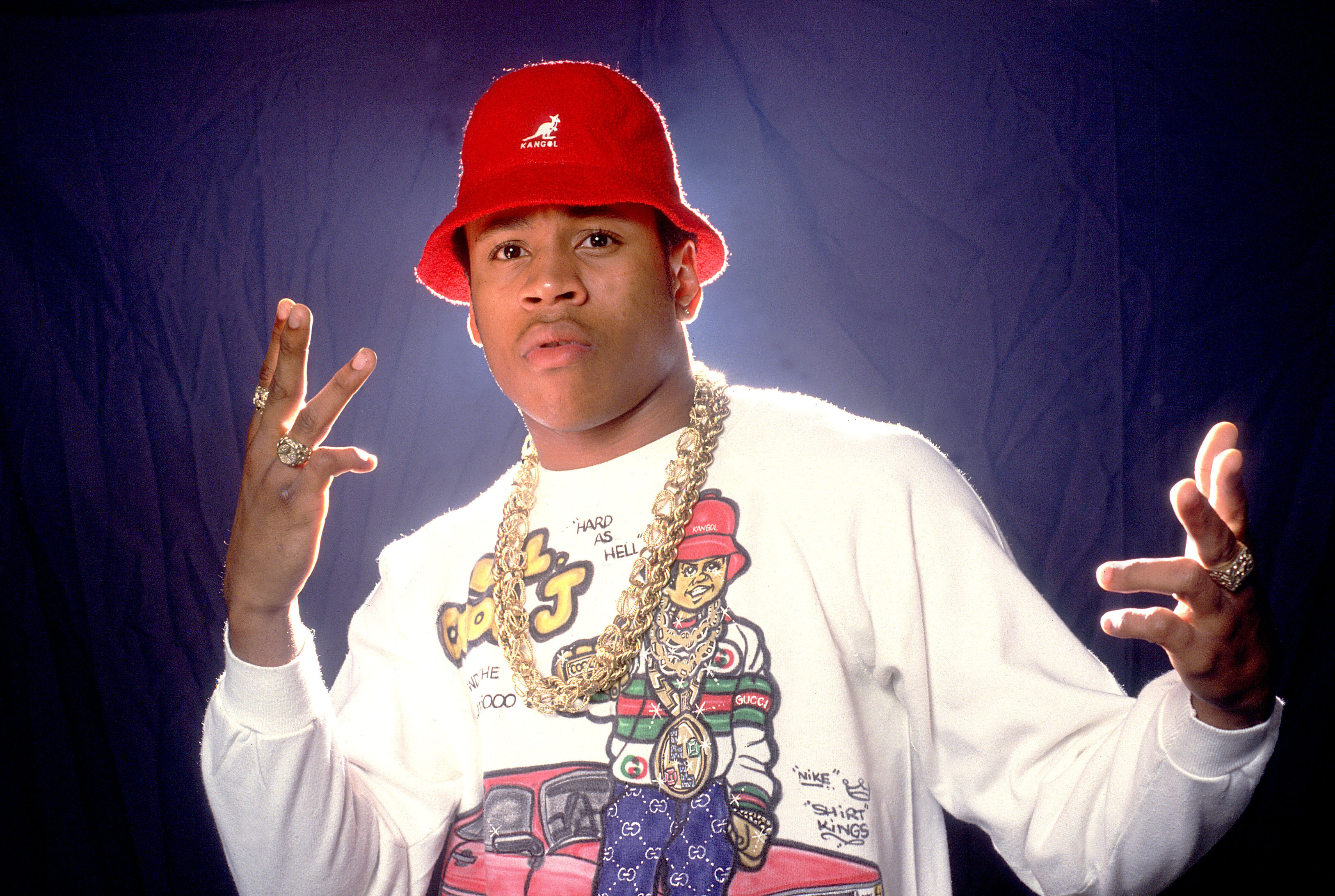
Run-DMC and the Beastie Boys took hip-hop across America on the 1986 Raising Hell tour, which featured opener LL Cool J. Run-DMC, with input from Def Jam founders Russell Simmons and Rick Rubin, had consciously set out to look tougher than any rock band out there. LL Cool J was quick to remind you that he could knock you whenever he felt like it, but Ladies Love Cool James was a lover man at heart, and he brought a playfulness (and TV star charisma) to the hip-hop look that helped bring it further into the mainstream in ways that are still being felt today.
“LL took streetwear mainstream when he wore a FUBU hat in a GAP commercial,” says Gurps Rai, CEO & founder of droppTV, the ‘shoppable Netflix’ for hip hop-loving hypebeasts. “That moment cemented FUBU as a household name but also took streetwear to a new commercial height.”
Madonna
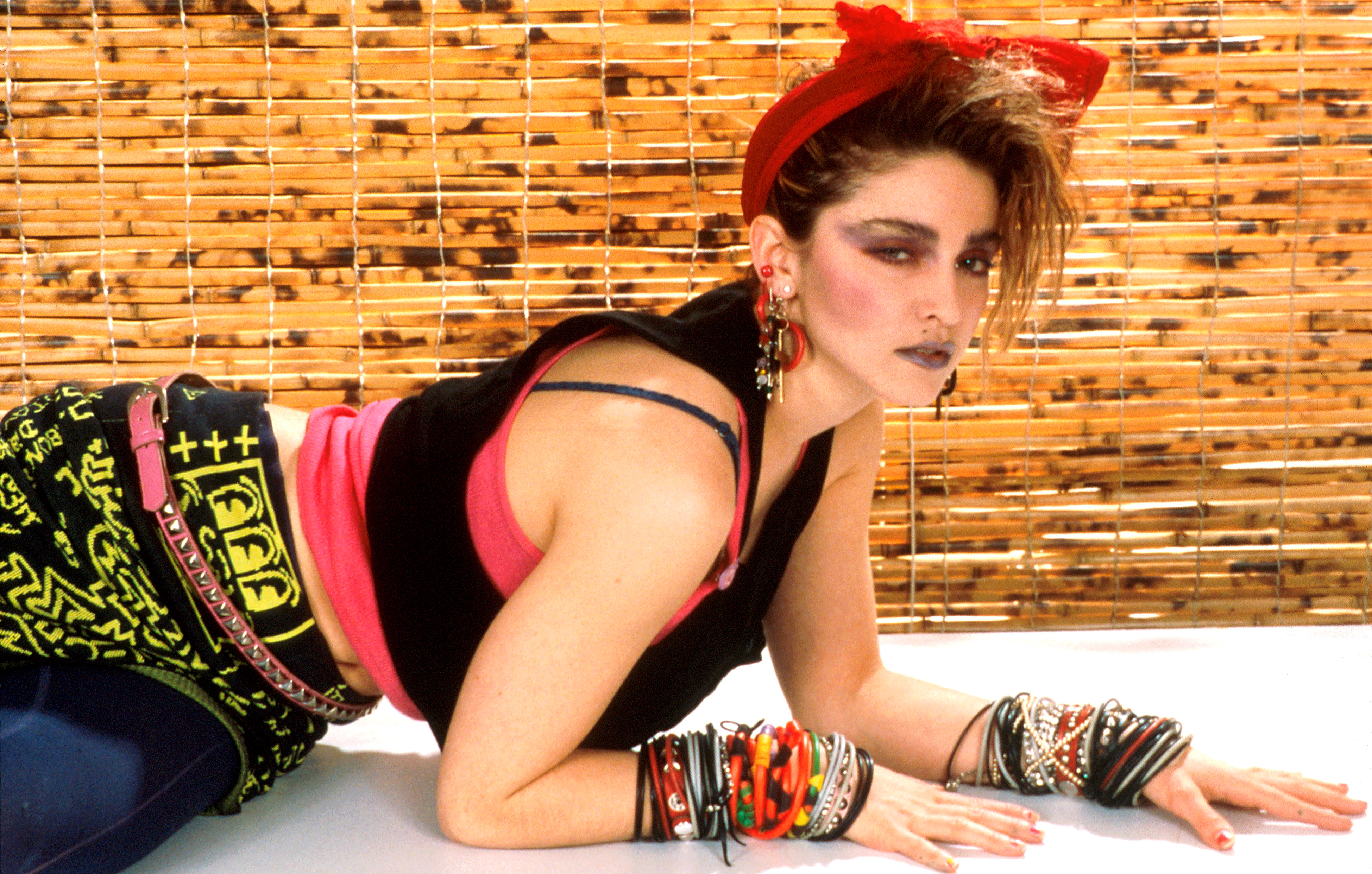
Madonna is the most stylish musician in history. If you dare disagree, she’ll jab you in the eye with a cone bra. Sure, she’s sported a lot of looks (many of which, it should be noted, she lifted from gay and Black club scenes that she took to the MTV mainstream) that are… a bit inaccessible to most people, unless you tend to go to a certain type of party. But she’s also sported stylish but more grounded looks that inspired young women and drag queens everywhere, from the New Age yoga mom look of her Ray of Light era to, especially, her early club-kid days.
“So much has been made of how she’s evolved and had so many different looks over the years, and if you go back to her early fame in the ’80s, you can really see how she took elements of what was going on in the NYC underground at the time (specifically punk, hip-hop, and the club scene) and brought it to the mainstream,” says Bender. “Her teen girl fans at the time wore the brightly colored tights, lace gloves, layered jewelry, etc. that she popularized, and that stuff all had roots in the underground. And I think her influence can still be felt in street style with the continuing popularity of crop tops and lingerie as outerwear.”
Judas Priest + Metallica
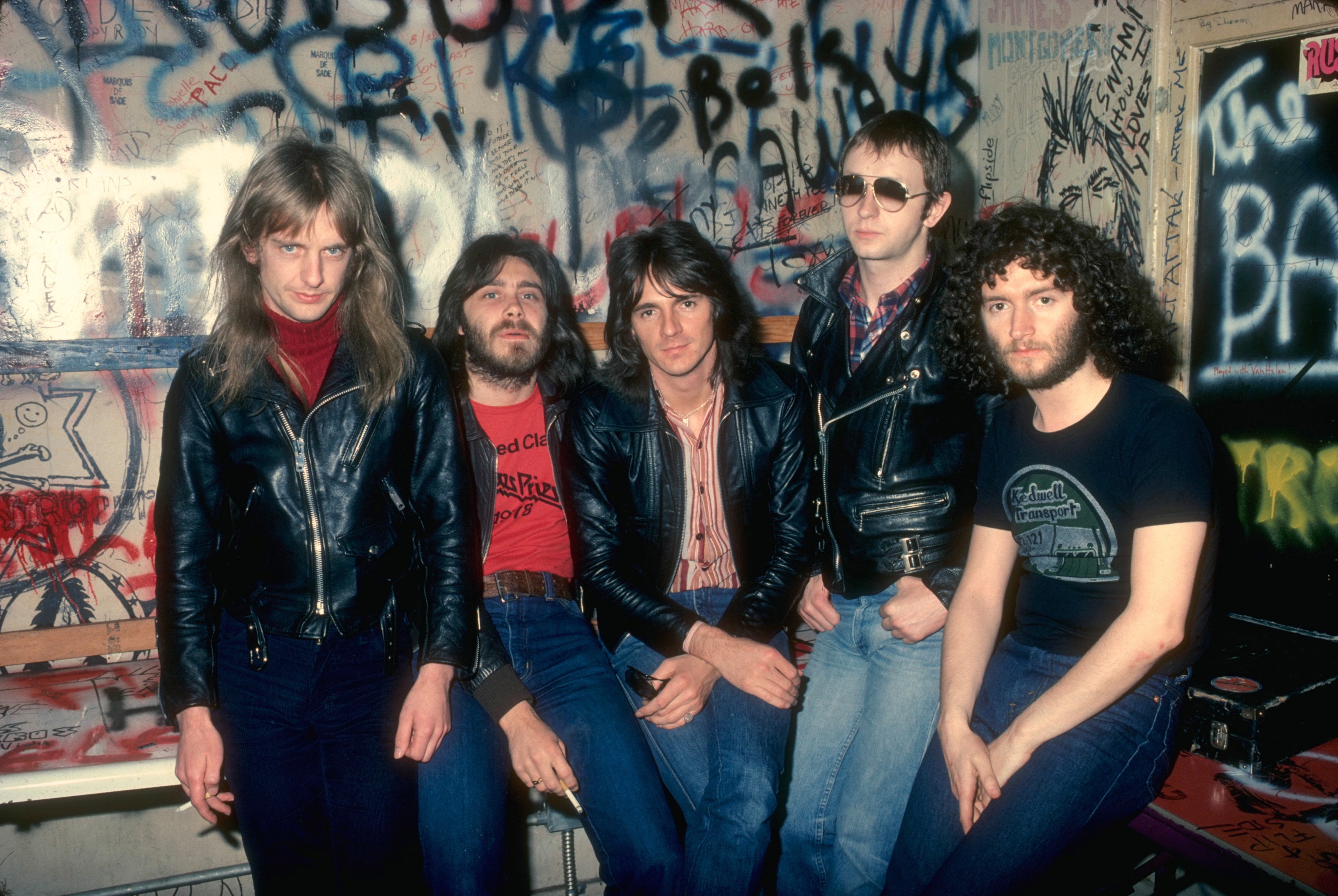
Style is a helpful way to find members of your tribe. Before the internet made it easier to find like-minded fans of whatever genre or artist you rock with, sometimes you just had to guess what someone might be into based on their dress. And if you were into heavy metal, an appreciation for denim and black clothing was usually a solid indication you were amongst your people, and headbanging could soon commence.
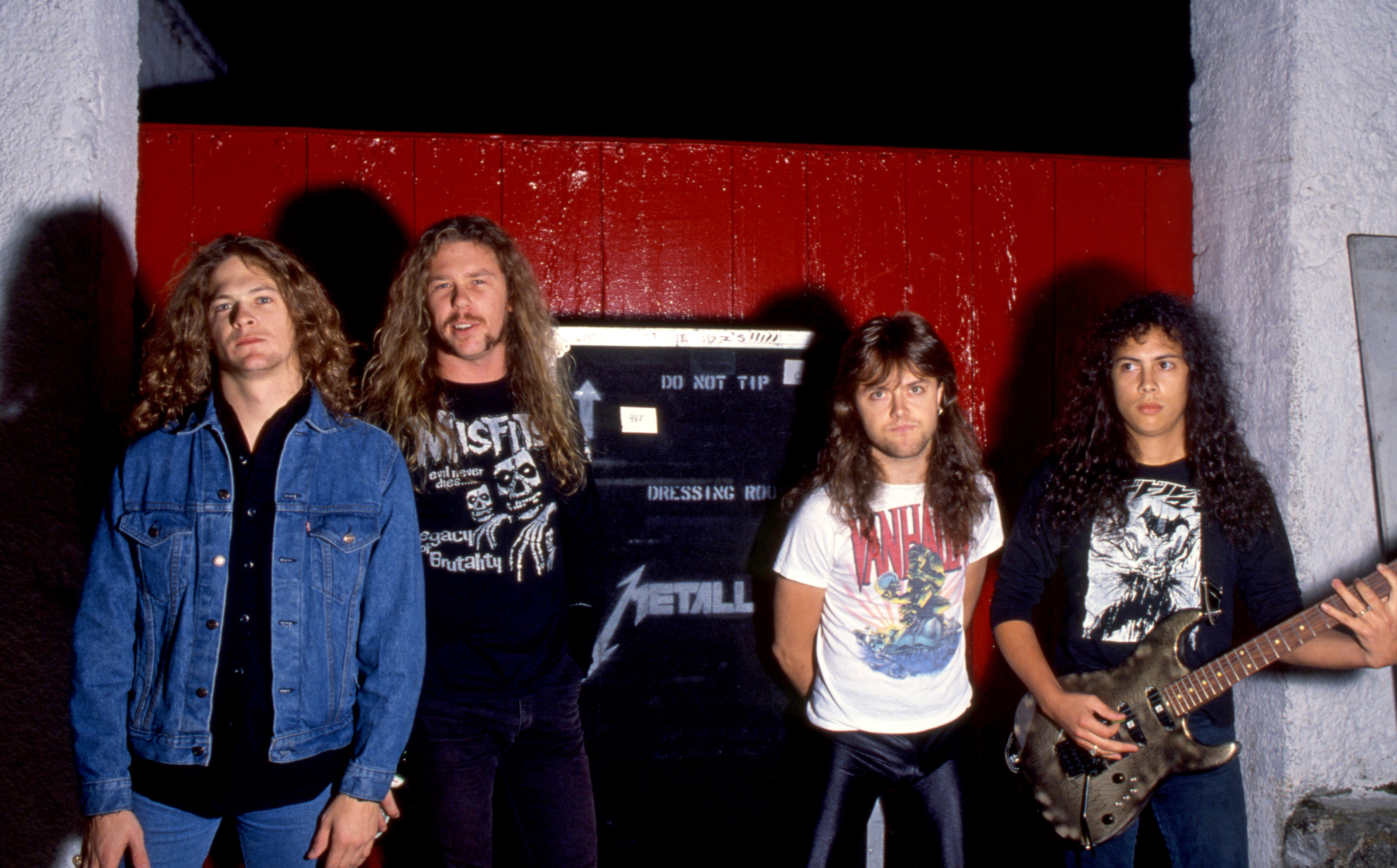
“Judas Priest codified metal’s denim and leather look in the late ’70s,” says Rolling Stone Senior Editor Kory Grow. “They’re most responsible for black becoming the color of metal (black T-shirts and whatnot). Also, don’t discount Metallica’s impact on fashion. In the early ’80s, bands like Mötley Crüe and Ratt were the biggest bands in L.A. metal. But instead of teased hair and outrageous stage clothes, Metallica wore jeans and T-shirts. Cliff Burton even wore bellbottoms. After they moved to San Francisco and got settled there, the ‘look’ of thrash metal — jeans and band shirts — became something of a uniform. I think this was just natural — Metallica dressed like the fans because they were fans. But when Slayer showed up in SF from LA, all bedecked in makeup, teased hair, and leather, the SF crowds just made fun of them. That was the last time Slayer wore makeup.”
N.W.A + Snoop Dogg
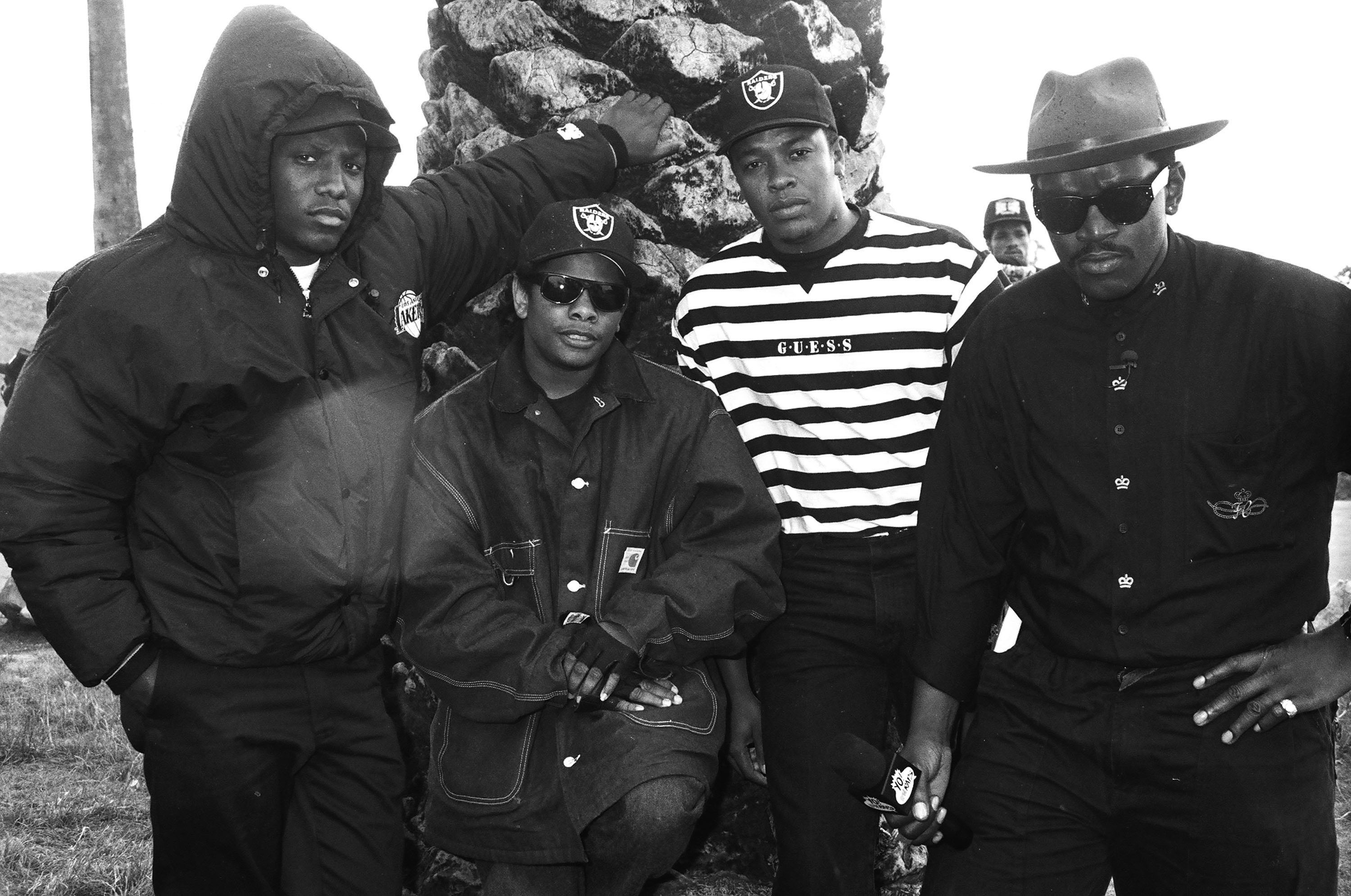
Run-DMC helped introduce the American suburbs to the sound and look of hip-hop. The explosive popularity, and controversy, of N.W.A.’s classic debut Straight Outta Compton made it clear rap wasn’t just a New York thing, and also introduced Los Angeles street style to the masses. The N.W.A. look was starkly monochromatic: black Dickies pants, large white shirts, either Raiders or Carhart black jackets, and snapback caps. Such was the importance of the look that the biopic Straight Outta Compton even included a scene where DJ Yella gets yelled at for not sticking with the color scheme.
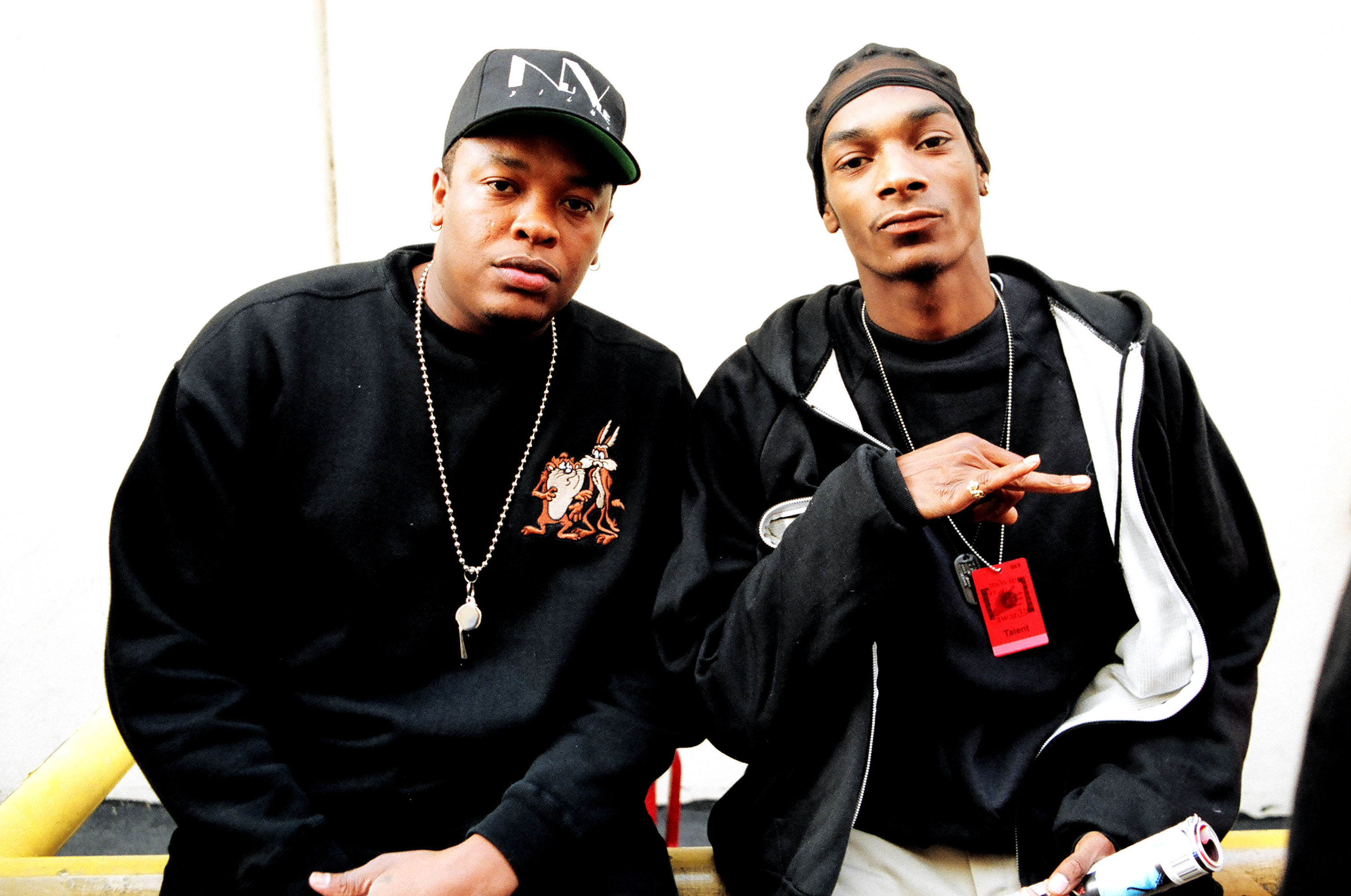
The underground popularity of N.W.A. helped enamor a certain kind of teenager with the look of Calfornia street gangs, but it was Dr. Dre’s protege Snoop Dogg who made long plaid shirts, oversized jerseys, baggy jeans, and Cross Colours jackets a gangsta rap uniform, and inspired a generation of parents to tell their kids to pull up their pants. But as popular as the “Gin & Juice” video was, Snoop The Stylish was only getting started, as he would go onto make oversized Tommy Hilfiger shirts a must-have for hip-hop fans (cleverly flipping a sign of WASP Americana into an aspirational item for Black youth), brought back the pimp look, and even beat Kid Cudi to the trend of rappers wearing rock band t-shirts.
Nirvana
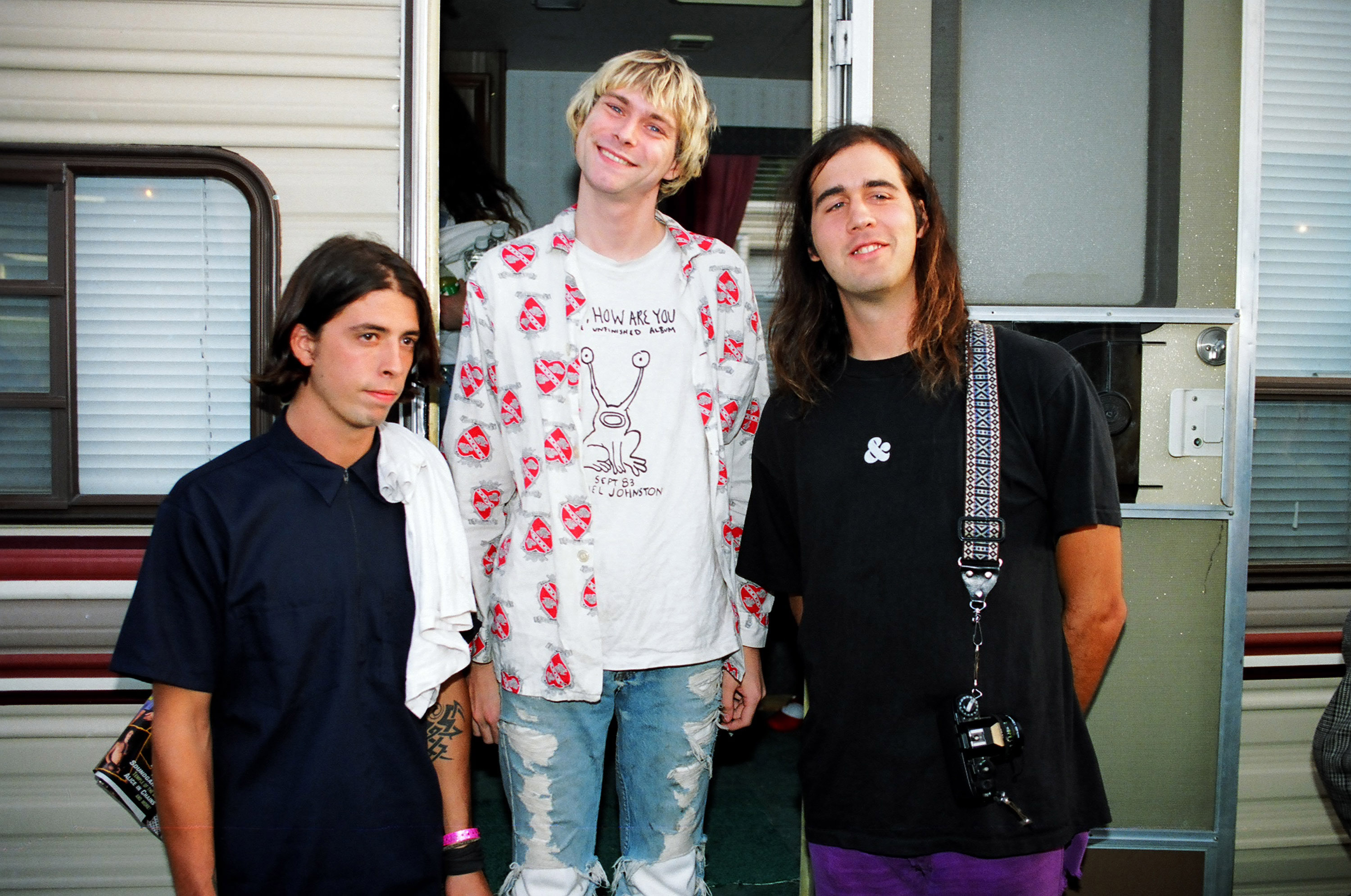
Deliberately choosing not to have an image is still an image, and Nirvana was so anti-fashion that they are now regarded as one of the coolest looking rock bands to ever roam the earth. The oversized sweaters were born of Kurt Cobain’s deep body insecurity, the flannel was just what everyone wore in the often frigid Pacific Northwest (and they were always several cheap pairs at nearby thrift stores), and the disheveled appearance was part of Cobain’s distrust of the mainstream. You can’t always plan on these things.
“Obviously Kurt Cobain wouldn’t want to be called a fashion icon, but the oversized cardigans, flannels, ripped jeans, boots, etc. that he wore had an indelible impact on how teens dressed at the time and as is so often the case the look became commercialized, going from angsty teens to Vogue photoshoots and mass-market fashions. I know grunge is kind of an overly simplified term for that fashion, but its impact can still be felt in Gen Z teens on Instagram and TikTok who channel that baggy ’90s style,” says Bender. “Certainly seems like a big influence on someone like Billie Eilish, for instance. I also think Cobain’s playing with gender norms (doing photoshoots in dresses, etc.) still feels really fresh and influential on the younger generation, even if they don’t realize he did that way back before they were born!”
Aaliyah
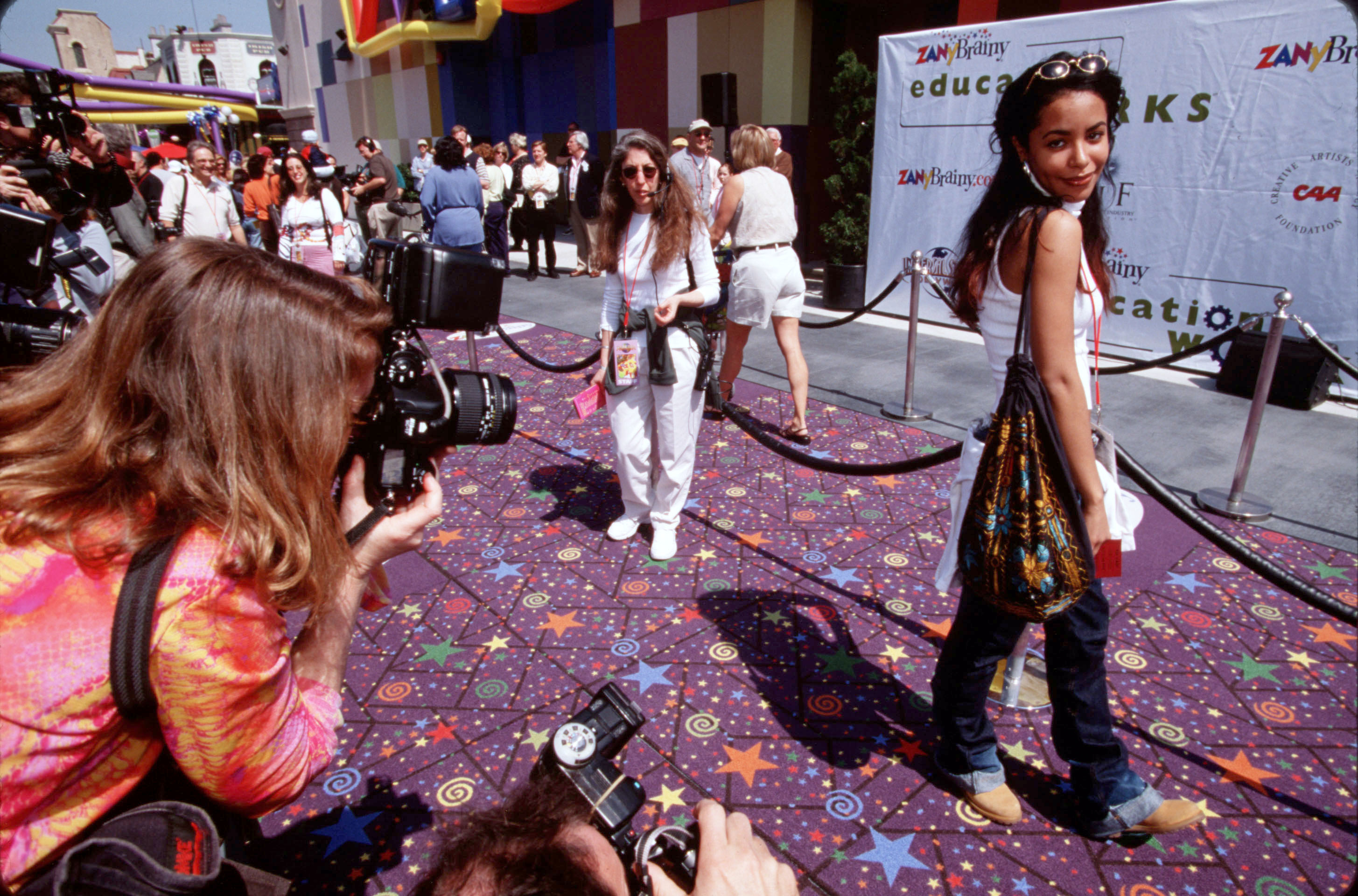
Tragically, Aaliyah Dana Haughton wasn’t with us for very long. But she never wasted a moment. “One In A Million” is putting it lightly, as artists still draw influence from her genre-agnostic approach to R&B. She also had a knack for continually minting new style trends, and was just as indifferent to established labels, from the baggy clothes and sunglasses look she introduced herself with to her later sleek-noir look, which Jezebel critic Julianne Escobedo Shepherd described as an early “union of goth styles with athletic wear,” which would later prove influential on the health goth trend, as well as on everyone else.
Her former stylist Derek Lee worked Aaliyah on her various looks. He remembers that “the point of her style was to be relatable & doable by the average girl. It was more so about the swag. Even when she wore designer clothes, we always had to bring in something relatable to the average sistah.” Lee points to the “Dolce & Gabbana ” look from her from “Try Again” video as ‘definitely’ her most iconic look.
Lee says that he knew Aaliyah had made a real impact “when I saw certain artists emulate her style after she passed away. It was so easy to spot,” pointing to the “midriff with baggy bottoms, bikini tops with strings that lace down the body, and certain leather pants are directly from ‘More Than a Woman.’” But beyond her influence on artists, Aaliyah’s style continues to resonate with everyone looking for a bold look “without a doubt,” Lee says. “Being able to be sexy wearing menswear was (one of) her thing(s). The showpiece of every look was confidence.”
Lauryn Hill
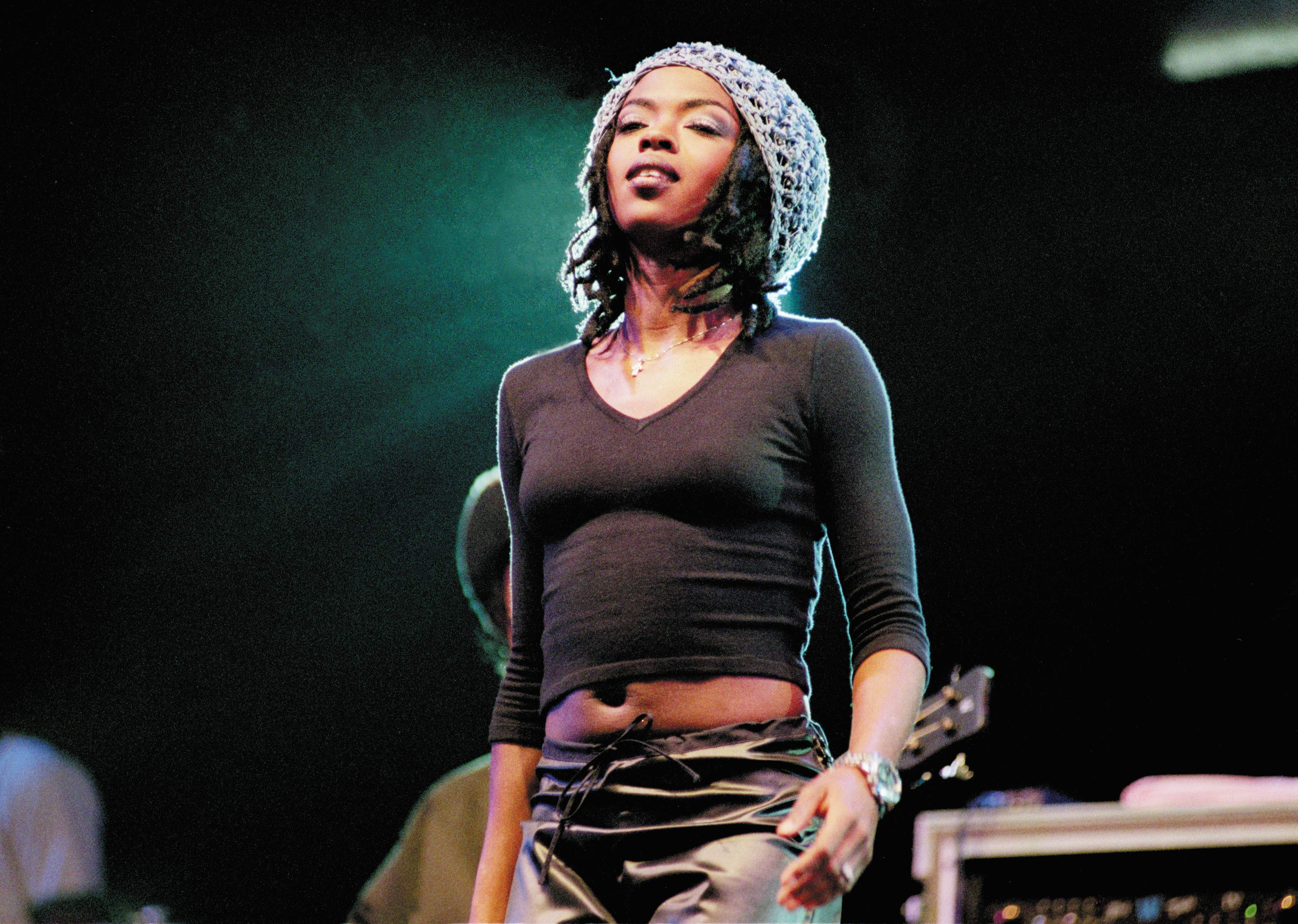
The Fugees’ second album The Score quickly established Lauryn Hill as one of the best singers of her generation, as well as a deft MC. Her masterpiece The Miseducation Of Lauryn Hill revealed the full-range of vision and songwriting mastery. Along the way, especially in the clips for “Killing Me Softly,” and “Doo Wop (That Thing),” Ms. Hill also made it clear that her style acumen nearly matches her genius.
Nikolina Jeric, co-founder of 2Date4Love and a lifestyle expert in urban culture, calls Hill “hands-down one of the most influential Black women when it comes to street style. In contrast to other celebrity women of color in the ’90s that were central to hip-hop culture — which would define street-style for decades to come — Lauryn Hill dressed with style,” she says, calling Hill “a true icon of urban culture that would lead to many Black women dressing and looking up to her.”
Jeric points to Hill’s “combination of urban attire, such as baggy pants and baseball caps, with a flair of luxury with big earrings, bracelets, and medallions,” as being an influential look, adding that she “was also a huge supporter of African culture and heritage, which was also ever-present in her wardrobe, everything from long flowy dresses and traditional shoes to the wooden jewelry that accompanied it. Together with her pro-Black and feminist views reflected in her later musical work after leaving the Fugees, Lauryn Hill is without question one of the most influential Black females that was way ahead of her time.”
Kanye West
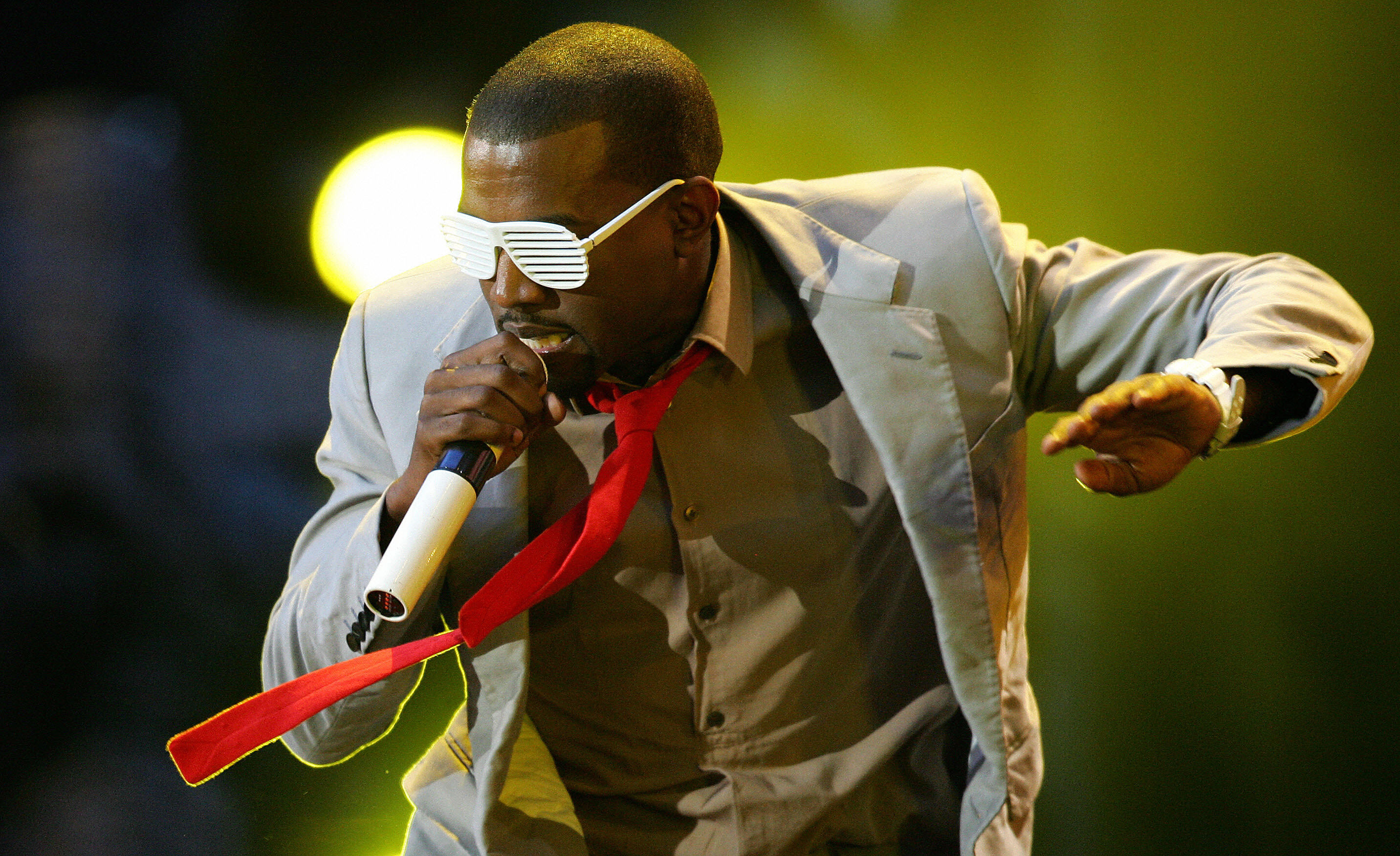
If we didn’t put Kanye West on this list, he’d absolutely come to the Uproxx offices and lecture us for two hours straight. Maybe three, if he went into a digression about Nikola Tesla.
But whatever you might think about his recent Presidential run or general Kanyeness these days, there’s no denying that he’s been nearly as influential in the world of both street style and high fashion as he has been in the music game. Honestly, he’d be a pioneer simply for getting rap fans really into pastels.
But from mixing elite college preppy signifiers (bright Polo shirts, Louis Vuitton backpacks) with hip-hop flair during his College Dropout days to the Blade Runner-inspired slatted glasses he sported on the Glow In The Dark tour, the later professional look he rocked during the 808s & Heartbreak era to the washed-out, gray saturated baggy clothes he’s been sporting lately, he continues to mint new trends every time he steps outside. And hey, people really love the Air Yeezy.
“Yeezy has become a model for the kind of power and influence rappers can have over fashion and, more importantly, business. Kanye has made the monolithic design and plain look a fashion staple,” says Rai. “In 2019, the Yeezy line sold more than $1.3 billion worth of shoes, up more than 50% from the previous year.”
Some artists covered here are Warner Music artists. Uproxx is an independent subsidiary of Warner Music Group.
